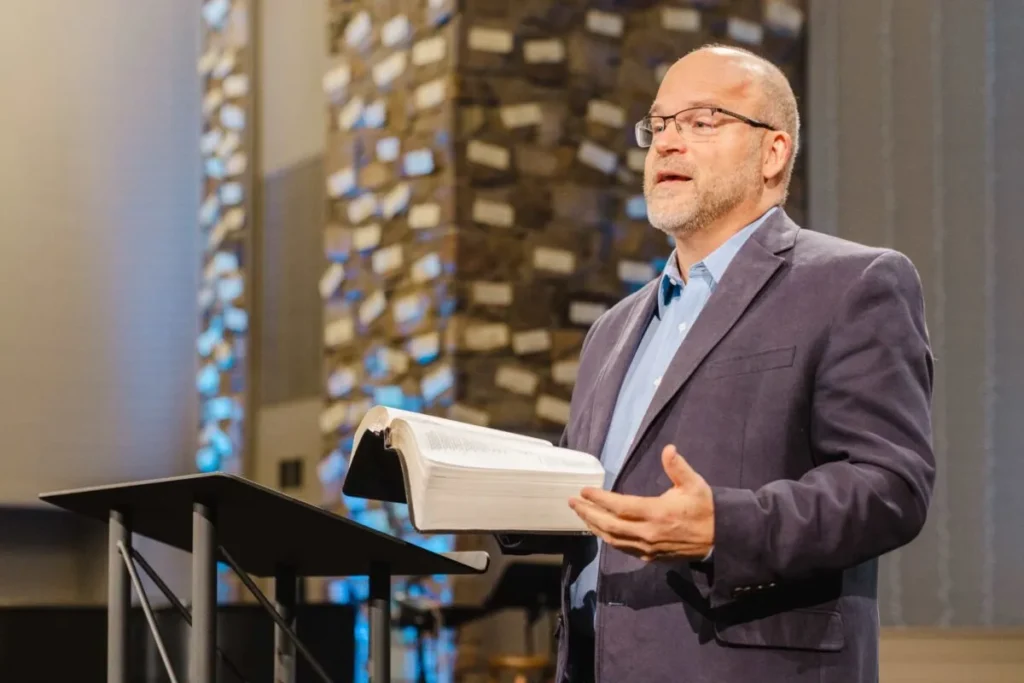Do you want to know the potential signs of an unhealthy pastor? Find out the potential signs of an unhealthy pastor and how to manage them.

Pastors are meant to grow the spiritual life and mindset of their members.
Furthermore, their role as spiritual leaders is to grow and influence the church community. However, there are instances when a pastor exhibits behaviors or characteristics that suggest he or she is unhealthy.
Knowing the signs of an unhappy pastor is essential for the well-being and spiritual health of both the pastor and the congregation.
Signs of an Unhealthy Pastor

To know an Unhealthy pastor, here are the potential signs to look out for:
1. They Burnout so Quickly
An unhealthy pastor shows signs of burnout, which can manifest as fatigue.
Sometimes it can manifest as exhaustion and a lack of enthusiasm for their pastoral duties. Furthermore, these signs can affect their ability to provide effective leadership and support.
Burnout is a clear sign that a pastor is struggling to balance their responsibilities and maintain their well-being.
Congregants may notice a decline in the pastor’s quality of sermons, pastoral care, and leadership when a pastor is burnt out.
2. They Lack Self-Care
An unhealthy pastor sometimes neglects their well-being, both physically and mentally.
These can set a poor example for the congregation and lead to emotional and physical issues. Pastors are expected to be spiritual guides and caregivers, but they are not immune to the stresses of life.
When a pastor neglects self-care, it can lead to physical health problems and emotional exhaustion. These can make it challenging for pastors to serve their congregations effectively.
3. They Have Poor Communication Skills
An unhealthy pastor struggles with communication, this sometimes can lead to misunderstandings and a lack of clarity in their message.
When a pastor can’t communicate effectively, it can result in congregants feeling disconnected from the message.
In addition, poor communication from the pastor can also lead to misunderstandings or misinterpretations of the pastor’s intent.
4. They Lack Transparency
Transparency is essential for building trust within the congregation.
An unhealthy pastor may be secretive or avoid addressing important issues, which can erode trust.
As a pastor, it is advisable to be honest and open about the church’s operations, decisions, and challenges. When a pastor lacks transparency, it can lead to suspicion and mistrust within the congregation.
5. They Neglect the Congregation’s Needs
An unhealthy pastor fails to address the emotional and spiritual needs of the congregation.
Furthermore, this neglect can result in a disconnect between the pastor and the congregation.
Remember, one of the major roles of a pastor is to provide spiritual guidance and support.
When a pastor neglects the congregation’s needs, it can leave members feeling unsupported and undervalued. This can lead to a decline in church attendance and engagement.
6. They Avoid Conflict
One of the signs of an unhealthy pastor is that they avoid dealing with conflicts.
Even though conflict is natural in a church community, it should be addressed immediately.
When a pastor avoids conflict, it can lead to several unresolved tensions within the church. Also, conflict avoidance can be detrimental to the congregation’s growth and unity.
Pastors should take out time to facilitate healthy conflict resolution and foster reconciliation within the church community.
7. They Lack Spiritual Growth
You can know an unhealthy pastor through their personal and spiritual growth.
An unhealthy pastor lacks spiritual growth and this can hinder their ability to lead effectively. In addition, note that the pastor is a spiritual leader, and their growth is essential for guiding the congregation.
Sometimes, stagnation in personal and spiritual development can lead to a lack of inspiration and fresh perspectives in their pastoral duties.
8. They Place Overemphasis on Personal Agenda
An unhealthy pastor focuses excessively on their agenda or interests.
Sometimes it is at the expense of the church’s broader mission and the needs of the congregation. Pastors are called to serve the spiritual and communal needs of the church with all their hearts.
When their agenda takes precedence, it can create a misalignment between the pastor’s leadership and the congregation’s well-being.
In conclusion, if you observe these signs in your pastor, it may be necessary to address these concerns within the church.
Related Searches:
